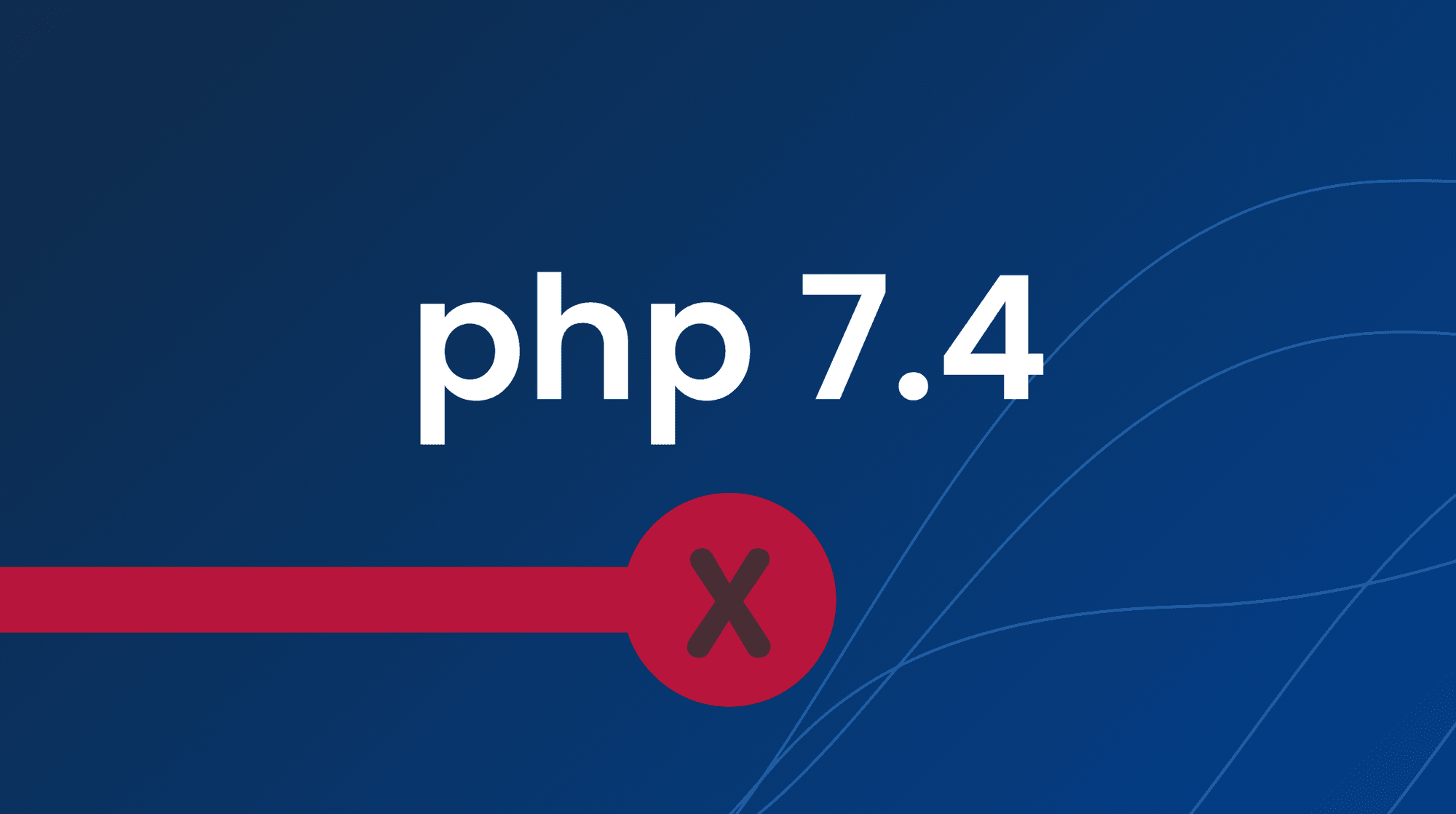如果您是網站所有者或開發人員,您就會知道擁有可靠的託管服務有多重要。停機可能是一場噩夢,導致收入損失、用戶滿意度下降和品牌聲譽受損。但不要害怕!隨著雲端運算和自動化技術的出現,您可以確保您的 WordPress 網站的無縫託管。
在本文中,我們將探討雲端運算的崛起、WordPress 在雲端自動化中的作用、軟體即服務 (SaaS) 的普及、雲端服務的區域市場表現以及雲端運算市場的未來。所以,繫好安全帶,準備翱翔雲端吧! 🌥️
但是為什麼雲端運算變得越來越流行呢?我們可以預期的成長率是多少?那麼雲端技術的應用方式有哪些呢?讓我們開始吧!
雲端運算的崛起
近年來,雲端運算在各行業的普及度和使用率急劇上升。雲端技術的便利性、可擴展性和節省成本的優勢使其成為數位領域的前沿。從個人到大型企業,雲端運算已成為儲存、管理和存取資料和應用程式不可或缺的工具。
越來越依賴雲端技術
雲端運算徹底改變了我們儲存和存取資料的方式。透過簡單的網路連接,使用者可以隨時隨地輕鬆從任何裝置存取他們的資料和應用程式。這種靈活性使雲端運算成為我們個人和職業生活中不可或缺的一部分。
雲端技術的發展導致人們越來越依賴基於雲端的服務來實現各種目的,其中包括:
- 資料儲存和備份:Dropbox、Google Drive 和 Microsoft OneDrive 等雲端儲存服務已成為個人和企業尋求安全儲存和備份資料的首選解決方案。
- 軟體即服務 (SaaS):借助 SaaS 應用程序,使用者可以存取和使用託管在遠端伺服器上的軟體應用程序,無需本地安裝。 SaaS 的常見範例包括 Salesforce、Microsoft Office 365 和 Slack。
- 基礎設施即服務 (IaaS):IaaS 供應商提供虛擬化運算資源,例如虛擬機器、儲存和網路。公司可以利用 Amazon Web Services (AWS)、Microsoft Azure 和 Google Cloud Platform (GCP) 等 IaaS 平台來建立和管理其基礎設施,而無需實體硬體。
預期成長率
雲端運算的成長潛力是驚人的。根據最近的預測,雲端運算市場預計將在未來幾年經歷顯著成長。以下是一些令人大開眼界的統計數據:
- 2023 年,終端用戶在公有雲上的支出可能達到 145,990 億美元以上[1].
- 雲端運算市場規模預估年複合成長率為 16.7%,到 2023 年將達到 $6233 億美元[3].
- 2023年公有雲服務收入或達145,260億美元[5].
- 2023 年雲端應用市場價值約 $1536 億美元[6].
雲端運算應用的普及
雲端運算的普及是不可否認的,各種規模的組織都享受著它的好處。以下是一些值得注意的統計數據,展示了雲端技術的廣泛應用:
- 2023 年,48% 的企業將最重要的資料儲存在雲端[2].
- 超過 92% 的組織使用雲端運算[4].
這些統計數據表明,人們對雲端運算的依賴日益增加,並且有潛力塑造數位格局的未來。隨著企業和個人擁抱雲端的強大功能,我們可以期待雲端技術能更加融入我們的日常生活。
雲端運算的興起是不可否認的。企業和個人都意識到了雲端技術的眾多優勢,包括提高靈活性和可近性、節省成本和可擴展性。隨著雲端運算市場繼續以驚人的速度成長,雲端運算的主導地位顯然將持續下去。
WordPress 在雲端自動化中的作用
雲端自動化已成為現代 Web 開發工作流程不可或缺的一部分。隨著對高效、可擴展託管解決方案的需求不斷增長,對自動化的需求變得比以往任何時候都更加迫切。在本文中,我們將探討 WordPress 在雲端自動化中的作用以及它如何提供可靠且簡化的託管體驗。
WordPress 自動化說明
WordPress 是一種廣受歡迎的內容管理系統 (CMS),它已經從一個簡單的部落格平台發展成為各種規模的企業用來建立和管理其網站的強大工具。隨著技術的進步,自動化徹底改變了 WordPress 網站在雲端部署和管理的方式。
為什麼要自動化 WordPress 任務?
手動執行重複任務可能非常耗時,而且容易出現人為錯誤。以下是自動化 WordPress 任務對於高效能雲端託管至關重要的一些原因:
- 省時:透過自動化,開發人員可以透過自動執行日常任務(例如部署新的 WordPress 實例、更新外掛程式和運行備份)來節省寶貴的時間。這使得他們能夠專注於 Web 開發的更重要的方面。
- 一致性:自動化任務可確保 WordPress 網站部署和管理的一致性。它消除了人為錯誤的可能性並確保每個實例都正確設定。
- 可擴展性:雲端自動化使開發人員能夠毫不費力地擴展他們的 WordPress 網站。透過自動化,只需點擊幾下即可新增實例或增加伺服器容量,確保即使在高流量期間也不間斷的效能。
- 效率:自動化 WordPress 任務可簡化流程並提高整體效率。透過減少人工幹預,開發人員可以避免重複和單調的任務,從而騰出時間進行更有成效的工作。
WordPress 自動化對可靠託管的好處
透過將自動化納入其 WordPress 託管工作流程,開發人員和企業可以獲得一系列好處,從而獲得可靠、無縫的託管體驗。以下是一些主要優點:
- 部署速度更快: 使用自動化工具 託管WP,開發人員可以快速啟動新的 WordPress 實例,從而減少網站啟動和運行所需的時間。
- 提高安全性:自動化允許在所有 WordPress 網站上一致地應用安全措施。這包括外掛程式和主題的自動更新以及定期的安全掃描,確保網站免受漏洞的侵害。
- 增強效能:自動化 WordPress 任務使開發人員能夠優化其網站的效能。從快取到圖像優化和資料庫管理,自動化工具可以有效地處理這些過程,確保網站快速回應。
- 簡化管理:自動化工具提供了一個集中式儀表板,開發人員可以從單一介面管理多個 WordPress 實例。這簡化了網站管理,使得監控效能、追蹤更新和處理備份變得更加容易。
總而言之,WordPress 自動化透過簡化工作流程、提高效率和提供可靠的託管體驗在雲端託管中發揮著至關重要的作用。透過自動執行重複性任務,開發人員可以專注於 Web 開發的更關鍵方面,同時還可以受益於更快的部署、更高的安全性、增強的效能和簡化的管理。借助正確的自動化工具,企業可以利用 WordPress 和雲端的強大功能來創建和維護卓越的網站。
軟體即服務 (SaaS) 及其受歡迎程度

軟體即服務 (SaaS) 近年來,軟體廣受歡迎,徹底改變了企業和個人存取和使用軟體的方式。在這個日益數位化的世界中,SaaS 提供了無數的好處,因此它成為軟體交付的首選也就不足為奇了。讓我們深入了解什麼是 SaaS、為什麼它如此受歡迎以及這項創新技術的未來前景。
什麼是 SaaS?
SaaS,也稱為“按需軟體”,是一種雲端運算模式,其中軟體應用程式以訂閱的方式透過網路交付。與需要在單一裝置上安裝和維護的傳統軟體模型不同,SaaS 允許使用者透過 Web 瀏覽器存取應用程序,無需下載和安裝。
SaaS為何如此受歡迎?
SaaS 迅速普及的背後有幾個原因:
- 成本效益: 透過消除前期成本和對硬體基礎設施的需求,SaaS 大大降低了企業和個人的進入財務門檻。使用 SaaS,用戶可以根據其使用情況支付訂閱費,這使其成為軟體存取和更新的更實惠的選擇。
- 可擴充性和靈活性: SaaS 提供靈活且可擴展的解決方案,使企業能夠根據其需求的變化輕鬆調整軟體使用情況。無論是增加或減少用戶數量,還是存取附加功能和存儲,SaaS 都可以輕鬆適應增長和變化。
- 輔助功能: 透過 SaaS,用戶只要有網路連接,就可以從世界任何地方存取他們的應用程式和資料。這種行動性和遠端存取使 SaaS 成為分散式團隊、遠端工作人員或經常出差的企業的理想選擇。
- 自動更新和維護: SaaS 提供者負責軟體更新、維護和安全,減輕使用者管理這些任務的負擔。這確保用戶始終能夠存取最新的功能和補丁,從而提高生產力並獲得無縫的用戶體驗。
SaaS 的未來
SaaS 的流行沒有絲毫減弱的跡象。隨著數位轉型繼續影響產業,SaaS 將繼續處於前沿,推動創新和效率。以下是未來值得關注的幾個主要趨勢:
- 市場成長: 預計到 2023 年,SaaS 市場規模將達到約 $2000 億美元,各行業的組織都將採用 SaaS 解決方案來滿足其軟體需求。
- 產業特定解決方案: 我們可以預期看到針對特定行業的 SaaS 產品數量將會增加,這些產品旨在滿足醫療保健、金融和教育等不同行業的獨特需求。
- 與人工智慧(AI)和機器學習(ML)的整合: SaaS 供應商將利用 AI 和 ML 的力量來提供更智慧、更個人化的解決方案,增強使用者體驗並推動更好的業務成果。
總之,SaaS 因其成本效益、靈活性、可訪問性和無憂維護已成為軟體交付的首選。隨著 SaaS 市場不斷發展和演變,企業和個人可以期待未來幾年出現更多的創新、客製化和自動化。擁抱 SaaS 革命,釋放數位時代軟體存取的全部潛力。 🚀
雲端服務區域市場表現
預計未來幾年北美專業雲端服務市場將經歷大幅成長,2023 年至 2028 年期間的預期複合年增長率 (CAGR) 為 15.23%。
主要市場洞察:
以下是有關北美專業雲端服務市場的一些重要見解:
- 提高採用率: 隨著各行各業的企業意識到雲端運算的優勢,對雲端服務的需求正在上升。這種日益增長的採用正在推動北美市場的成長。
- 數位轉型: 雲端服務在實現數位轉型計畫中發揮著至關重要的作用。組織正在利用雲端功能來提高靈活性、可擴展性和效率,同時降低成本。
- 公有雲主導地位: 預計由亞馬遜網路服務 (AWS)、Microsoft Azure 和谷歌雲端平台 (GCP) 等主要供應商提供的公有雲服務將主導北美市場。這些平台提供適合不同業務需求的廣泛服務。
- 產業特定解決方案: 雲端服務供應商越來越注重提供針對不同產業獨特需求的產業特定解決方案。這種有針對性的方法可以幫助北美的企業找到符合其特定需求和挑戰的雲端服務。
- 混合雲採用: 北美的許多組織正在採用混合雲模型,也就是結合了公有雲和私有雲環境。這種方法使企業能夠保持對敏感資料的控制,同時受益於公有雲服務的靈活性和可擴展性。
為什麼要投資雲端服務?
投資雲端服務可以為北美的企業帶來許多好處,包括:
- 節省成本: 雲端服務消除了對昂貴的硬體基礎設施和前期投資的需求。企業可以按需存取資源並僅按實際使用量付費,從而節省大量成本。
- 可擴充性和靈活性: 雲端服務使企業能夠快速擴展或縮小其基礎設施以滿足其不斷變化的需求。這種靈活性使組織能夠快速適應市場波動和不斷變化的客戶需求。
- 增強協作: 雲端協作工具可實現團隊之間的無縫溝通和協作,無論他們身在何處。這有助於在日益遠端的工作環境中提高生產力和團隊合作。
- 資料安全與災難復原: 雲端服務供應商優先考慮資料的安全性和保護性。他們實施強大的安全措施,包括加密、身份驗證和備份系統,以保護關鍵的業務資訊。
- 創新與競爭優勢: 雲端服務為企業提供尖端技術和工具,推動創新並帶來競爭優勢。透過利用這些功能,北美企業可以在快速發展的數位環境中保持領先地位。
在雲端運算採用率不斷提高、數位轉型計畫以及雲端運算帶來的優勢的推動下,北美專業雲端服務市場有望實現成長。北美的企業有機會利用雲端服務的強大功能來推動其在當今競爭激烈的商業環境中取得成功。
雲端運算市場的未來
雲端運算市場的未來前景十分光明。隨著技術的進步和雲端服務的日益普及,市場預計將快速成長。事實上,專家預測,到 2027 年,全球雲端運算市場規模將達到驚人的 $1.24 兆美元[1](https://www.marketwatch.com/press-release/cloud-computing-market-size-to-reach-usd-10453-billion-by-2027-2021-08-31)。這證明各行各業對雲端解決方案的依賴日益增加。
雲端運算已成為全球企業不可或缺的一部分,提供可擴展性、成本效益和增強靈活性等眾多優勢。企業逐漸意識到將業務遷移至雲端的價值,因此採用率不斷提高。根據最近的統計數據,目前約有 94% 的公司正在使用雲端服務[2](https://www.datamation.com/cloud-computing/cloud-computing-statistics/).
以下是關於雲端運算市場的未來及其可能發展方式的一些重要見解:
- 混合雲解決方案:
隨著業務營運日益複雜,對混合雲解決方案的需求預計會增加。企業正在尋求在內部部署基礎架構和公有雲服務之間取得平衡。混合雲兼具了兩全其美的優勢,使公司能夠利用公有雲的可擴展性和成本效益,同時保持對敏感資料的控制。 - 邊緣運算:
隨著物聯網 (IoT) 的不斷擴展,邊緣運算的採用將激增。邊緣運算使運算和資料分析的能力更接近資料產生的源頭。這對於即時處理和低延遲響應至關重要的行業(例如自動駕駛汽車、智慧城市和工業自動化)至關重要。 - 人工智慧和機器學習:
雲端運算將在人工智慧(AI)和機器學習(ML)演算法的開發和部署中發揮關鍵作用。雲端提供的強大運算能力使組織能夠訓練複雜的模型並有效地處理大型資料集。隨著人工智慧和機器學習日益主流,對支援這些技術的基於雲端的基礎設施的需求只會增長。 - 安全與合規性:
資料安全性和合規性將繼續成為雲端營運企業關注的主要議題。隨著雲端儲存的資料量和重要性不斷增加,對強大安全措施的需求也隨之增加。雲端服務供應商正在大力投資增強安全協議和合規框架以解決這些問題。此外,加密技術和身分管理的進步將進一步加強基於雲端的解決方案的安全性。
總而言之,雲端運算市場的未來充滿機會和成長。隨著企業體認到雲端服務帶來的好處,雲端服務的採用將持續上升。從混合雲解決方案到邊緣運算以及人工智慧和機器學習的集成,雲端將塑造未來幾年組織的營運和創新方式。
無論是其提供的可擴展性、成本效益或靈活性,雲端都在改變企業在數位時代的運作方式。雲端運算的前景光明,它成為全球商業格局的支柱只是時間問題。所以,繫好安全帶,擁抱雲端革命吧!
[^1^]: 來源
[^2^]: 來源
結論
總之,雲端運算和 WordPress 自動化徹底改變了託管產業,為企業提供了可靠、高效的解決方案。隨著雲端技術的興起以及對軟體即服務(SaaS)的日益依賴,雲端服務市場預計將繼續快速成長。 WordPress 在雲端自動化中的作用怎麼強調都不為過,它提供了無數好處,例如可擴展性、靈活性和簡化的維護。
隨著雲端市場的擴大和發展,企業必須適應並利用這些技術來保持競爭力。 Managed-WP 是該領域值得信賴的公司,提供優質託管的 WordPress 雲端託管服務,可簡化基礎架構並提供專家支援。透過 Managed-WP,企業可以自由地專注於他們的數位體驗,而將 WordPress 託管的技術方面交給專家。了解有關 Managed-WP 及其全面服務的更多信息,請訪問 管理-wp.com.
🚀 利用 Managed-WP 擁抱雲端自動化的強大功能,將您的託管提升到新的高度!
常見問題解答
- 什麼是 WordPress 自動化?
WordPress 自動化是指使用工具和外掛程式簡化和自動化 WordPress 中的各種任務的過程,例如更新、備份、安全性掃描、內容發佈等。
- 為什麼 WordPress 自動化對於可靠託管很重要?
WordPress 自動化在可靠託管中發揮著至關重要的作用,它可減少人為錯誤、提高效率、最大限度地減少停機時間、確保定期備份、增強安全性並提供無縫的用戶體驗。
- 哪些是流行的 WordPress 自動化外掛?
一些流行的 WordPress 自動化外掛程式包括 WP-Optimize、UpdraftPlus、Jetpack、ManageWP、MainWP 和 WP Super Cache。這些外掛程式提供自動備份、網站最佳化、安全掃描、效能快取和集中網站管理等功能。
- WordPress 自動化如何幫助提高網站安全性?
WordPress 自動化外掛程式透過自動掃描漏洞、監控可疑活動、阻止惡意 IP 位址或機器人、強制使用強密碼以及及時應用安全更新來幫助提高網站安全性。
- 使用 WordPress 自動化是否有風險?
雖然 WordPress 自動化可以大大簡化網站管理,但如果實施不當,可能會存在一些風險。這些風險可能包括插件衝突、不正確的設定、資料遺失或安全漏洞。選擇可靠的插件、定期更新它們並定期檢查您的自動化設定非常重要。



















